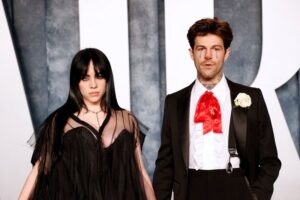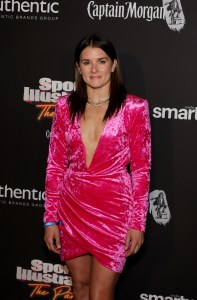Author Spotlight: Sophie Gilbert
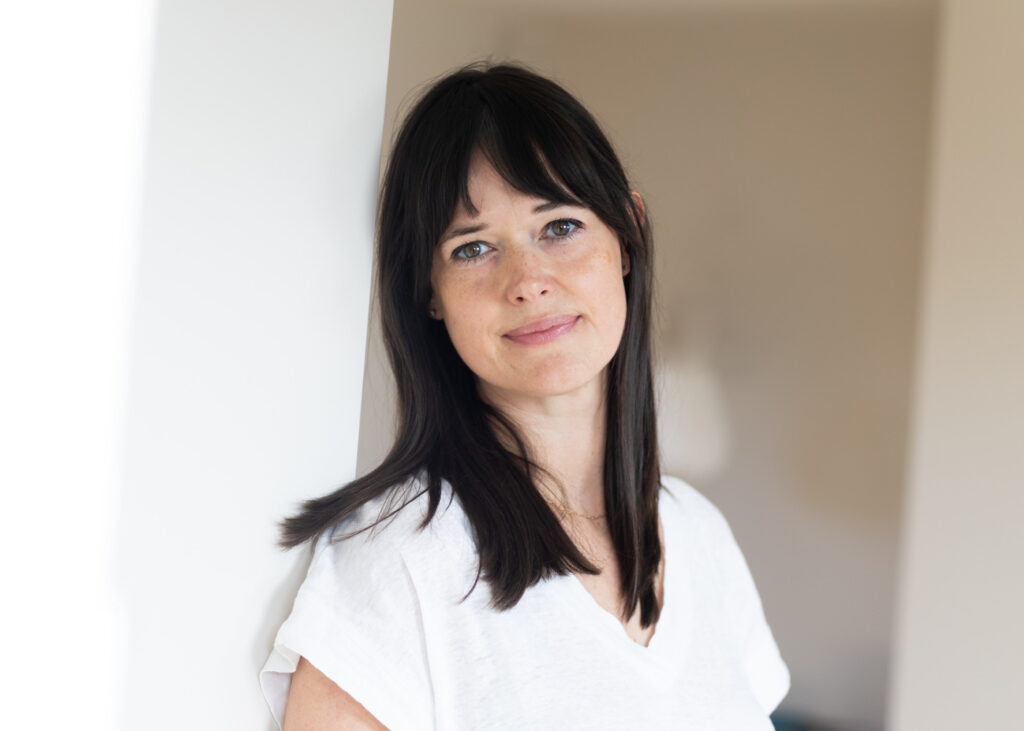
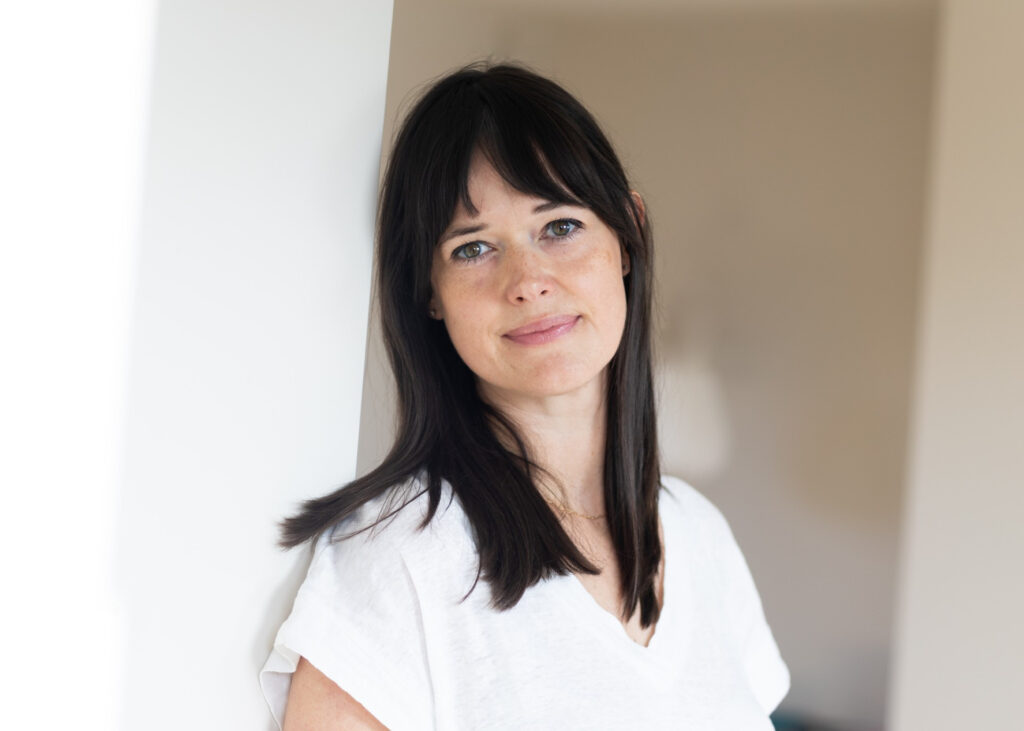
Sophie Gilbert is a staff writer for The Atlantic. She was a finalist for the Pulitzer Prize in Criticism in 2022, won the 2024 National Magazine Award for Reviews and Criticism, and is the author of forthcoming book “Girl On Girl: How Pop Culture Turned a Generation of Women Against Themselves.” In her book, Gilbert casts her critical eye on pop culture at the turn of the century, analyzing its lasting influence on millennial women’s identities and ambitions.
In our conversation, we discussed pornography’s influence on pop culture, misogyny in reality television, capitalism’s corruption of the “Girl Power” slogan, and the power of stories.
Your book is a reappraisal, as you say, of pop culture examined through the lens of gender. The scope begins in the 90s, when millennial girls were approaching young womanhood, and spends later chapters on the 2000s and 2010’s. What repeats reliably across these three decades is a cycle of progress, to varied degrees of effectiveness, then a swift and often brutal backlash. Why is it important to reappraise pop culture? Why this era specifically?
I decided to reappraise this era when Roe v. Wade was overturned. It was a moment in time where catastrophes were happening, one after another. First, Donald Trump defeated Hiliary Clinton, the first female candidate for president from a major party. Then we had #MeToo which was an outpouring of stories of abuse and harassment. #MeToo made it seem like things were not actually going that well for women at work. Then, we had the pandemic where we started to see the full force of women’s rage, stuck at home, often many of them women with children struggling to do five jobs at the same time. It felt like a real breaking point in the world of domesticity. There were all these moments in time that crystallized that things for women are not okay, and progress is not inevitable.
A lot of people were digging into the politics of why that was, but it always seemed to me that culture is profoundly influential on how we define ourselves, our ambitions, our identities. I wanted to go back to this era because I know how the culture had influenced me and because it was the time when millennial women were coming of age. I certainly remember the era of pop culture being bad. I was really shocked by the scale of how monstrous it was and perhaps naively shocked at how influential porn was on the culture. Porn, as a new artform, was the most influential cultural product at the time. In every aspect of pop culture, porn had a cultural dominance, and still does.
The epigraph to the introduction includes two quotes. One from beloved poet Adrienne Rich, and the other from the slightly controversial, notoriously “anti-porn” feminist Andrea Dworkin. Can you explain why you chose to include an Andrea Dworkin quote, and why this quote, “woman is not born: she is made,” in particular?
Honestly, I wasn’t thinking of the significance of Andrea Dworkin when I included the quote. I was looking for wisdom from the elders that would get at what I was trying to say in the book. The Rich quote (“Re-vision – the act of looking back, of seeing with fresh eyes, of entering an old text from a ew critical direction – is for us more than a chapter in cultural history: It is an act of survival. Until we can understand the assumptions in which we are drenched we cannot know ourselves”) was so perfect because it was so crucial about why we need to revisit the culture of the past to understand all the ways in which it formed us. Thank you, goddess!
The Dworkin quote was a version of the same thing. I went back recently and reread “Pornography: Men Possessing Women,” “Women Hating,” and “Right Wing Women” (by Andrea Dworkin). There was a quote in “Pornography” that really spoke to me: “Pornography incarnates male supremacy.” The simplicity of how she said it captured something that made sense as a frame. I’m not “anti-porn” with the virulence that Dworkin was, and I certainly don’t share in all her opinions, but she was precient about the violence in pornography and how it became sanctioned, and what kind of impact that might have.
In chapter 5, in your discussion of pornography you say porn “tests the limits of what men could do to women for entertainment while cameras roll.” In your research, how did porn emerge as a central contributor to pop culture’s misogynist treatment of women?
I wasn’t expecting it to have as much as a presence. My idea was to go back and do some cultural/historical digging to see what would resonate with what is happening now. I always compare porn to reality TV because it has a massive influence that no one wants to take seriously, talk about, or even think about. People write off porn and reality TV as trash and don’t understand what it is sending out to us.
I found the scale of porn, the explosion of it, even before the internet, so interesting. VHS as a technology was basically established on the back of porn. I grew up watching videotapes from Blockbuster and I had no idea that I was utilizing a technology that was made so people could watch other people have sex.
In the early 2000s, porn culture became so core. Everything was enthralled with porn and its imagery, tropes, and aesthetics. It was a very jokey moment that said, “Don’t take any of this seriously!” I found the weaponization of irony interesting because that certainly has resonated with a lot of the misogyny in the last few years. The idea that misogyny is just an act, a performance, makes it really hard to critique. If someone tells you they are just making a joke it forces you to be the kill joy, ruining all the fun.
The more research I did, the more porn seemed to be everywhere. In every topic, era, virtually every person, and cultural product porn was involved or influential in some way.
How did we get from Riot Grrrl, a collective political movement, to #girlboss, an individual capitalist aspiration?
Through the Spice Girls. I’m so sad to say that because I loved them as a tween. It was the corruption of “Girl Power” from this furious activist slogan that had specificity, demands, and an agenda to the Spice Girls version that was about spectacle, fun, and celebration. There is a joy to that too, but when Spice Girls became famous and Girl Power became their slogan, it didn’t mean anything. The Spice Girl’s financial success, the branding deals, and number of products that they were able to sell became so overwhelming that it really took over music. Marketers at that point started to glom onto the spending power of teenage girls who don’t have mortgages, but who do have babysitting money and cash to spend. They are a great market to sell frivolities to. The minute people saw how the Spice Girls could tap into that market it was basically over for the angry ladies of rock. That was how we ended up with the pop stars of the 2000s that were similarly glitter, shiny, fun. The music was for girls, but the aesthetic was for boys.
A lot of people have described “Baby One More Time” (The Britney Spears song and music video) to me as the moment they grew up. For a lot of us older millennials it was a rupture in the fabric of time, afterwhich nothing else was the same.
You argue reality TV, shows like The Bachelor and Real Housewives, informs, upholds, and reinforces misogynist ideals and marginalizes and tokenizes women of color. We have consumed so much sensationalized reality TV, it makes sense now that the United States has a reality TV president surrounded by reality TV looking women. How accurate is pop culture as a barometer for how society values women? Could we use it to predict presidential elections?
I have a line in the book about the moment I thought Hilary Clinton would be elected president. I remember thinking it would be so powerful for everyone to see the most powerful position in the whole world held by a woman. That will shift people’s thinking! But at the same time I was writing about the Ghostbusters movie. Men didn’t want women to be Ghostbusters. They didn’t want to see their beloved cultural totems corrupted by the presence of yucky girls! Of course I should have seen that as a harbinger of what was to come. If men are not willing to give up one single Ghostbusters movie they are not going to give up the seat of power.
Culture is hugely influential. I think Donald Trump would not be president if he had not been on a reality show. We savvy cultural consumers look at reality TV and see that it is staged. We understand that it is all fake, constructed simulacra, but a lot of people don’t see it that way. Trump in particular is an inveterate salesman and showman. Something about reality TV really suited him because it let him be obnoxious and ostentatious. It let him sell himself as a rich successful man.
In the early days of reality TV, the minute people understood it was going to be a smash, it became this race to the bottom. Everyone was trying to make shows that would be incredibly cheap and grab eyeballs. People were competing to have the most disgusting formats: Fifty women pageant style competing to marry a man they’ve never seen before. It was turning women into farm animals, livestock at the country fair. In some ways, we have never lost the origins of that model. We see it throughout The Housewives franchise and The Bachelor. A lot has become better since then, but we are still stuck within a lot of the same framing.
The diffusion of media sources – more streaming services, blogs, Instagram, Facebook, and even OnlyFans – has the potential to create broader, more visible modes of difference, but it often still upholds existing oppressive structures. How is a layperson supposed to know the difference? Should they be expected to care?
Most consumers can sense when something is offensive. Platforms like OnlyFans are interesting to me because they are driven by market demand. For years culture has told us there is one standard of female beauty and sexual attraction, but the women who make the most money on OnlyFans are over fifty. There is a substantial sexual drive towards women who are older which is not something that mainstream culture has acknowledged. There is space for performance of all different kinds of bodies. It is not the indicate standard of sexuality that was propagated in most media in the 2000s. That itself is revealing and a sign of progress. It shows that we are not all robots who blindly follow what we see and consume. Desire is actually really complicated. When we are allowed the space to figure it out ourselves, who knows where it might lead.
In terms of cultural consumption, I know that not everyone will connect with this book, but I do know that women, especially millennial women, are great readers. My hope is that there is enough in the book that connects with different people’s experiences so everyone can find a touchstone. So far every review and interview has zoomed in on different points, which to me is super fascinating. It shows that it is up to every individual to take away what they want from the book, and what leads them to further consideration. I want my project to be something people take for themselves.
There has been such a fascinating and rich revision project of this era. There have been so many great books, TV shows, and new justice for people like Monica Lewisnski and Tonya Harding. There is a new willingness to see these women, who were totally stereotyped in the era, with the full complexity that they deserve.
People don’t take women’s culture and history seriously. So much of history is written from a male perspective, basically all of history up until very recently. People assume history is the stuff of gravitas – things that happen in government buildings and on battlefields – but history is how people are formed. This is our history and it formed us. It had a profound impact on the way the world currently works. My goal was to try to get people to see the significance of women’s history and treat it with some credence.
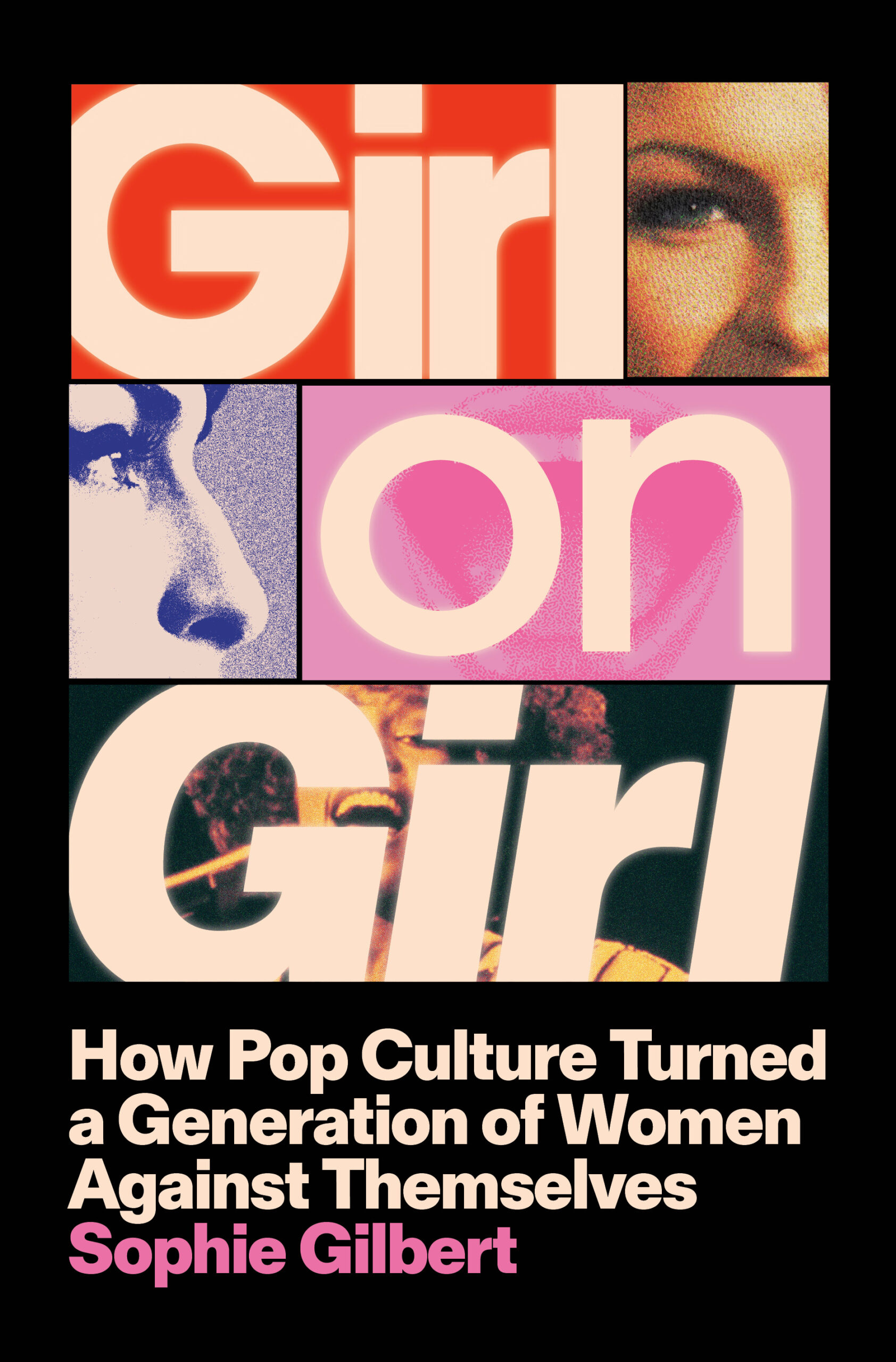
I imagine it’s fun to do research on a subject you are genuinely interested in.
So fun! A lot of the research in this book is really heavy. Working on chapter six I definitely had nightmares. It was really dark. The best moments writing the book were when I figured out why things happened. To make pop culture make sense is always the goal for me.
Even more nefarious than porn, the grabby not-so-invisible-hand that guides pop culture is capitalism. Whether or not something can sell – from gory revenge porn to fad diets to Kardashian imprinted beauty products to plastic surgeries – determines whether or not it should be promoted in mainstream pop culture. How did the aughts get away with buying and selling feminism, thus removing all collective power and sense of a movement?
The trick that was pulled off was persuading women that feminism was no longer necessary because they had money now. That is overly simplistic, but it is so much of what happened at the end of the nineties. The messaging was, “Girls! You have jobs now! You can do whatever you want. You can wear whatever you want. Isn’t it fun? Go buy this lipstick. Live free! Be sexually desirable.” But really, this is allowed as long as you conform to a quite narrow vision of womanhood.
Spending money is thrilling, as we know. Earning money can be similarly thrilling. The trick of post feminism was harnessing that. And making it seem like spending money was the same thing as having equality. It might have seemed like it at the moment too, but it really did neutralize the momentum of the feminist movement in a way that took longer than a decade to see in full clarity.
I am reminded that Riot Grrrl intentionally didn’t copyright the phrase “Riot Grrrl” or “Girl Power.” It was for everyone to use. Now, we can buy feminism as a fashion statement. How was that transition from Riot Grrrl to capitalist feminism so swift?
Because it was easy. People have been expressing frustration in reviews that the book does not have more answers. I wish I had more answers. The answers that I have are vague and abstract. I think we need to move away from an individual idea of success and towards a more collective struggle like what we had in the 70s, which created some fairly substantial political change.
Individualism is so much easier. Capitalist feminism has very simple solutions: ask your boss for a raise, do a power pose, do a lean in circle. It makes the feminist project small and manageable by breaking it up into small goals rather than the much broader institutional goals that we still somehow haven’t managed to achieve in the U.S. Persuading America to see women as full human beings is surprisingly hard. Telling women they can be empowered by buying lipstick or a Wonderbra is much simpler.
I found the final chapter very forward thinking. In it you say stories, specifically new stories, have the potential to rewire our brains away from the turn of the century’s misogynist pop culture. Where do you imagine these stories will come from? Where will they not come from?
Recently, there have been a lot of movies about women that have perplexed me in an interesting way. I’m still thinking about Babygirl months later because I can’t quite figure it out. I love that. I love that it is not this sort of rote boy meets girl framing. It is rich in all these interesting ways and keeps you at a distance. The show Dying For Sex has been really fascinating in its treatment of female sexuality that we rarely see in mainstream television.
The industry at the moment seems to be in a period of retrenchment. That makes me think more of the change will happen at a smaller scale. Women are endlessly creative, endlessly resilient, and endlessly flexible in terms of what we can do in our art. Making our art for a long time was difficult and we made it anyway. The fact that there are fewer obstacles now and much more receptiveness to different kinds of stories about women really makes me hopeful for the future. Will it be enough? I don’t know. My book is not a manifesto, maybe someone else can write that. Stories define our imagination. Stories are where the bounds lie. I hope that will seed something new for the future.
The post Author Spotlight: Sophie Gilbert appeared first on Our Culture.



